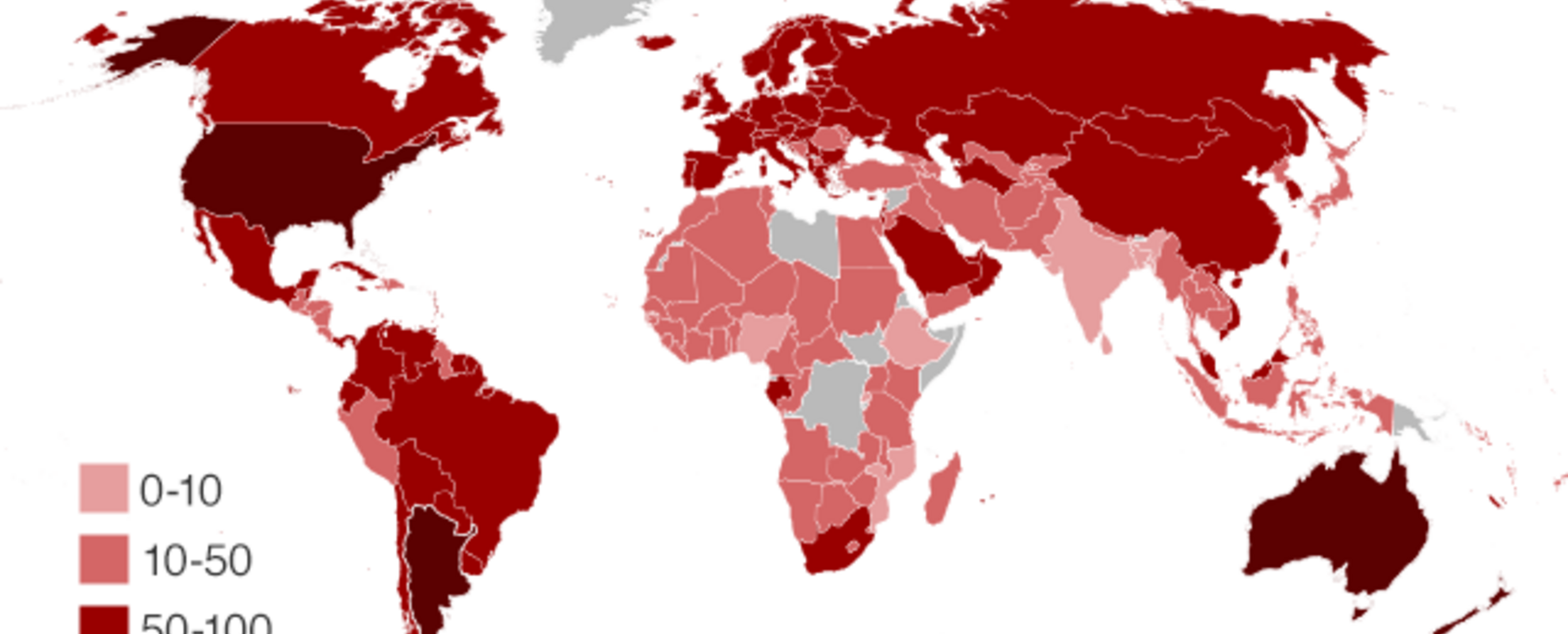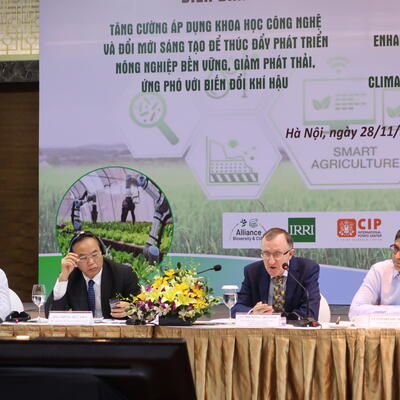
Are we eating less meat?—Oxford Martin School fellow Hannah Ritchie confirms ‘No’
Broken Record Alert:
People WILL NOT change their diets for environmental reasons.
No matter how often we hear “EAT LESS MEAT”
we eat more meat when we can afford it, because we like it.
@HannahRitchie02 reports.
—@TamarHaspel on Twitter, 4 Feb 2019
The following excerpts are taken from a BBC analysis piece published yesterday that was commissioned by the BBC from Hannah Ritchie, an expert from the Oxford Martin School and the non-profit organization Global Change Data Lab.
‘Rising incomes
‘. . . [G]lobal meat consumption has increased rapidly over the past 50 years. Meat production today is nearly five times higher than in the early 1960s—from 70 million tonnes to more than 330 million tonnes in 2017.
‘A big reason for this is that there are many more people to feed. Over that period the world population more than doubled. In the early 1960s there were around three billion of us, and today there are more than 7.6 billion.
‘While population is part of the story, it doesn’t entirely account for why meat production increased five-fold. Another key factor is rising incomes.
‘Around the world, people have become richer, with the global average income more than tripling in half a century. When we compare consumption across different countries we see that, typically, the richer we are the more meat we eat.
‘There are not just more people in the world—there are more people who can afford to eat meat.
‘Who eats the most meat?
‘We see a clear link with wealth when looking at patterns of meat consumption across the world.
‘In 2013, the most recent year available, the US and Australia topped the tables for annual meat consumption. Alongside New Zealand and Argentina, both countries topped more than 100kg per person, the equivalent to about 50 chickens or half a cow each.
In fact, high levels of meat consumption can be seen across the West, with most countries in Western Europe consuming between 80 and 90 kilograms of meat per person.
At the other end of the spectrum, many of the world’s poorest countries eat very little meat.
The average Ethiopian consumes just 7kg, Rwandans 8kg and Nigerians 9kg. This is 10 times less than the average European.
‘For those in low-income countries, meat is still very much a luxury. . . .
‘Middle-income countries driving the demand for meat
‘It is clear that the richest countries eat a lot of meat, and those on low incomes eat little. This has been the case for 50 years or more. So why are we collectively eating so much more meat?
‘This trend has been largely driven from a growing band of middle-income countries. Rapidly growing nations like China and Brazil have seen significant economic growth in recent decades, and a large rise in meat consumption.
‘In Kenya, meat consumption has changed little since 1960. By contrast, the average person in 1960s China consumed less than 5kg a year. By the late 1980s this had risen to 20kg, and in the last few decades this has more than tripled to over 60kg.
‘The same thing happened in Brazil, where meat consumption has almost doubled since 1990—overtaking almost all Western countries in the process. . . .
‘Is meat consumption falling in the West?
Many in Europe and North America say they are trying to cut down on meat, but is it working?
Not really, according to statistics.
Recent data from the United States Department for Agriculture (USDA) suggests meat consumption per head has actually increased over the last few years.
While we may think that meat is becoming less popular, US consumption in 2018 was close to its highest in decades.
It’s a similar picture with meat consumption in the EU.
Read the whole article by Hannah Ritchie: Which countries eat the most meat?, BBC News, 4 Feb 2019.
Related posts on the ILRI blogs
Where nutrients and protein sourced from livestock remain vital—Crawford Fund, 4 Feb 2019
Climate change policy must distinguish (long-lived) carbon dioxide from (short-lived) methane–Oxford study, 29 Jan 2019
FAO sets the record straight–86% of livestock feed is inedible by humans, 28 Jan 2018
FAO sets the record straight on flawed livestock emission comparisons–and the livestock livelihoods on the line, 27 Jan 2019.
IFPRI’s Shenggen Fan on the ‘differentiated approach’ needed to navigate today’s food systems, 26 Jan 2019.
With huge variations in meat consumption, we’re ‘all in this existential crisis together’,—Vox, 25 Jan 2019.
Should we eat red meat? Depends on who’s eating—New York Times, 22 Jan 2019.
African livestock: A terrible thing to waste,22 Dec 2018.
A move away from ‘grain fundamentalism’ to higher quality milk, meat and egg calories to fight malnutrition,15 Nov 2018.
Yes, eating meat affects the environment, but cows are not killing the climate, 30 Oct 2018.
Greenhouse gas emissions from dung patches in developing countries are ‘likely highly overestimated’—New report, 3 Oct 2018.
IFPRI, ILRI leaders: Sustainable small-scale livestock farming is essential to meeting the 21st-century’s protein needs, 26 Sep 2018.
‘High-yield’ farming costs the environment less than previously thought—and could help spare habitats, 20 Sep 2018.
FAO on the common but flawed comparisons of greenhouse gas emissions from livestock and transport, 19 Sep 2018.
Squaring the meat vs veganism circle, 6 Sep 2019.
One-size-fits-all ‘livestock less’ measures will not serve some one billion smallholder livestock farmers and herders, 2 Aug 2018.
Why livestock belong on the table—whether we eat meat or not, 26 Jun 2018.
Is promoting vegetarianism for all the world’s people a form of colonialism? just Euro-centric?, 26 Jun 2018.
A better way for vegans, vegetarians, meat eaters and livestock herders alike—By ecologist Ian Scoones, 22 Jun 2018.
Livestock-enhanced diets in the first 1,000 days of life: Pathways to better futures in low-income countries, 19 Jun 2018.
It’s not enough to go vegetarian to fight climate change, 11 Jun 2018.
Checking the facts behind the ‘livestock facts’ we think we know, 6 Jun 2018.
Avoiding meat and dairy is ‘the single biggest way’ to harm poor livestock herders, 5 Jun 2018.
New studies provide the first accurate estimates of greenhouse gas emissions from East African livestock, 3 Jun 2018.
Shirley Tarawali on convergence in consumption of milk, meat, eggs at the Global Forum for Food and Agriculture, 26 Mar 2018.
Mobile pastoralism—A 10,000-year-old practice still robust, if threatened, in the Mediterranean today, 19 Mar 2018.
Cleaning up assessments of livestock-environment systems in developing countries with CLEANED, 16 Mar 2018.
Lora Iannotti on livestock and animal-source foods at Berlin’s Global Forum for Food and Agriculture, 6 Mar 2018.
BMZ’s Stefan Schmitz on sustainable solutions for the livestock sector, 5 Mar 2018
Beef cattle grazing on American rangelands—not feedlots—could be net carbon sink, 27 Feb 2018.
Cereal straws and stovers for sustainable livestock futures: When crop biomass becomes livestock gold, 27 Feb 2018.
Towards a sustainable, responsible and efficient livestock sector—Jimmy Smith at the Berlin Global Forum for Food and Agriculture, 22 Feb 2018
’If you care about agriculture, you care about livestock’—Bill Gates, 30 Jan 2018.
Jimmy Smith speaks in Australia on the pursuit of a ‘low-emissions cow’ and other livestock matters, 3 Jan 2018.
Livestock in developing countries—Misperceptions, facts and consequences, 5 Oct 2017.
























